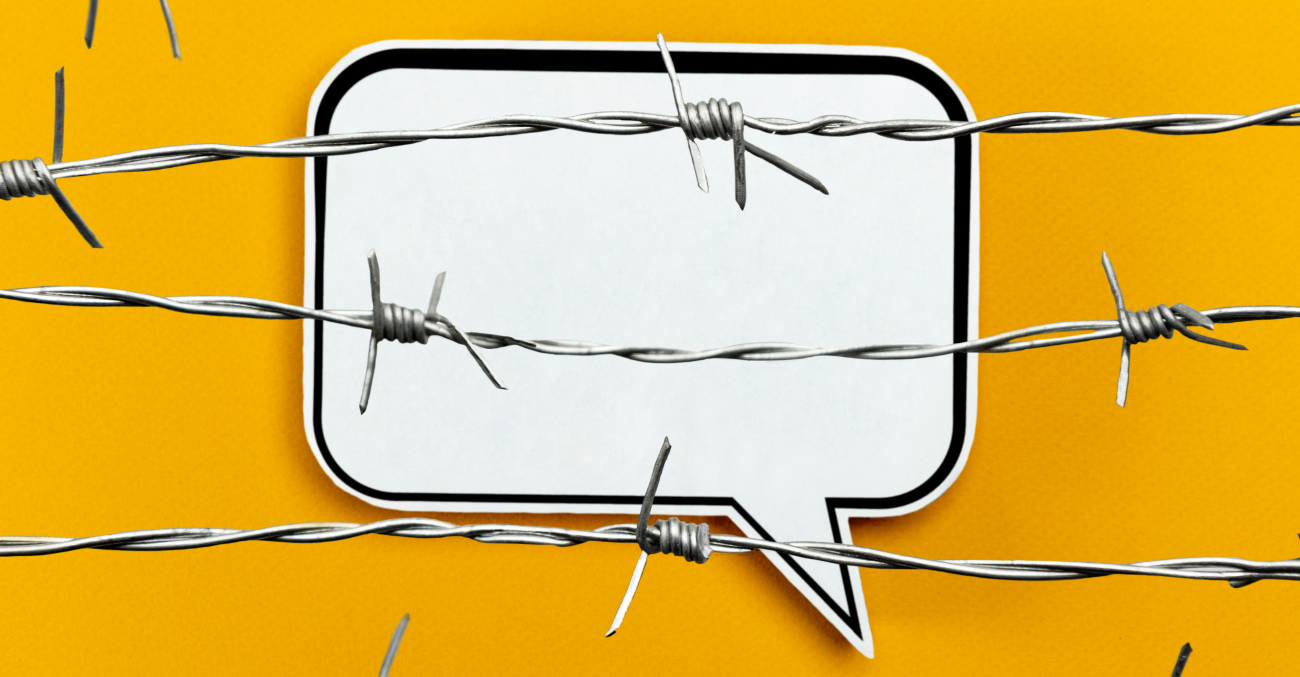
Censorship has posed an interesting debate for mankind since time immemorial. While censorship is usually practiced out of concern for society’s well-being, many people opine this is a blatant violation of people’s right to speech. So, which side is in the wrong here? Well, it’s complicated.
Ever since the dawn of the internet, the incredible speed at which ideas have circulated over the web is nothing short of a miracle. It was as if everyone was given a mic at a debate competition. If you ask me, while everyone deserves to have a voice, not everyone deserves to have an audience. So, while there is an abundance of “ethically correct” opinions online, there has also been a parasitic growth of immoral beliefs in the shadows of the online world. That’s where the problem begins.
You see, humans are impressionable creatures by nature. We tend to formulate our beliefs through observation and reasoning. However, this does not imply that our judgment is infallible. The idea of censorship is to protect such individuals from inflicting damage upon themselves and possibly the people around them. While this sounds quite useful for modern society in theory, it’s quite different in practice. This leads us to the most significant problem associated with censorship: the misuse of censorship power to manipulate the masses.
As Sir John Dalberg-Acton rightly said, “Power tends to corrupt, and absolute power corrupts absolutely.” The Republic of China is a prime example of this exploitation of power. China runs the world’s most extensive censorship system, employing millions of people to censor anything the government finds objectionable. According to the South China Morning Post, “Prominent taboos in the China network include the three T’s: Taiwan, Tibet, and Tiananmen Square.”
Probing further, it was found that Chinese internet companies are required by law to employ hundreds, if not thousands, of “Censor officers” whose jobs are to find and manually remove anything offensive to the Chinese school of thought. Employees describe this job as acting as sanitation workers for cyberspaces. That’s how far certain nations like China are willing to go to stifle the voice of the opposition.
On the other hand, censorship is not all bad. I firmly believe that there are many cases where censorship is necessary. For example, some terrorist organizations make computer games, cartoons, and music videos to recruit minors for their extremist training programs. According to unodc.org, “Recruitment tactics include mixing cartoons and children’s stories with messages promoting and glorifying acts of terrorism, such as suicide attacks.” In other words, terrorists are attempting to brainwash young minds through the internet to recruit and train them to become terrorists. If this program doesn’t qualify for censorship, what does?
The idea of censorship can be traced back to when Plato advocated for censorship after Socrates was sentenced to death for “corrupting the minds of the youth” Many people debate that the original idea of censorship has been long lost since then, and I agree with this view. Censorship is a beneficial tool for society only if used sparingly.
I would like to end this article with some of my own thoughts; it’s counter-intuitive and aimless to be completely with or against censorship. Censorship of information should be accepted by the general public as an unavoidable function of the government and should be treated as such. A just government will make good use of censorship, while an unjust government will use it to fuel its political propaganda. This doesn’t make censorship good or bad; rather, it’s a powerful tool that can lead to dire consequences in the hands of the wrong figure of authority.
Therefore, just censorship is a characteristic of societal peace.
Support Young Creators Like This One!
VoiceBox is a platform built to help young creators thrive. We believe that sharing thoughtful, high-quality content deserves pay even if your audience isn’t 100,000 strong.
But here's the thing: while you enjoy free content, our young contributors from all over the world are fairly compensated for their work. To keep this up, we need your help.
Will you join our community of supporters?
Your donation, no matter the size, makes a real difference. It allows us to:
- Compensate young creators for their work
- Maintain a safe, ad-free environment
- Continue providing high-quality, free content, including research reports and insights into youth issues
- Highlight youth voices and unique perspectives from cultures around the world
Your generosity fuels our mission! By supporting VoiceBox, you are directly supporting young people and showing that you value what they have to say.





